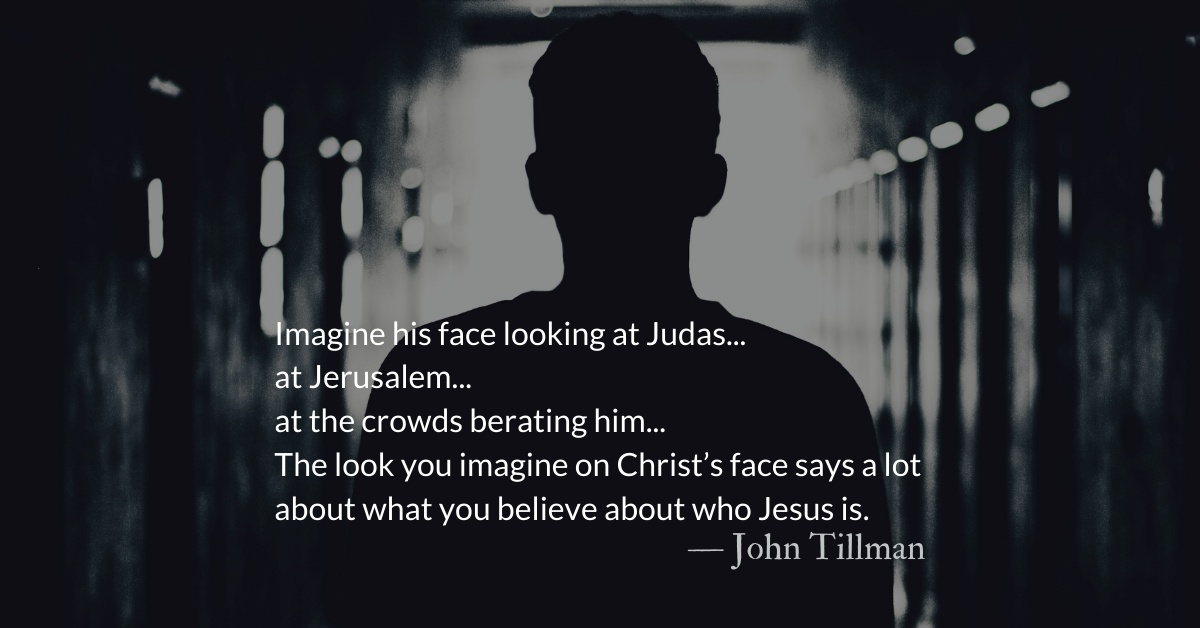Links for today’s readings:
Read: Genesis 44 Listen: (4:38), Read: Matthew 5 Listen: (6:03)
Scripture Focus: Genesis 44.11-15
11 Each of them quickly lowered his sack to the ground and opened it. 12 Then the steward proceeded to search, beginning with the oldest and ending with the youngest. And the cup was found in Benjamin’s sack. 13 At this, they tore their clothes. Then they all loaded their donkeys and returned to the city. 14 Joseph was still in the house when Judah and his brothers came in, and they threw themselves to the ground before him. 15 Joseph said to them, “What is this you have done? Don’t you know that a man like me can find things out by divination?”
“The play’s the thing in which to catch the conscience of the king.” — Act 2, Scene 2 of Hamlet by William Shakespeare
Reflection: Divining the Truth by Actions
By John Tillman
Divination refers to spiritual practices from diverse religions and sects, that are believed to derive the truth, usually the future, through interaction with “the divine.”
When Joseph said he could find things out by divination, he was being clever.
Among the divination practices of the day were the interpretation of natural phenomena (such as the flight patterns of birds or weather), examining of animal entrails or tea leaves, and interpreting dreams.
Divination was used by Joseph’s family. Laban told Jacob that he used divination to discover God was blessing him because of Jacob. (Genesis 30.27) Joseph’s interpretation of dreams was a God-empowered form of divination. Later, God would ban the Israelites from pursuing knowledge through these methods. (Leviticus 19.26)
It’s possible that Joseph did use the silver cup for divination practices learned in Canaan or Egypt, but that is not what Joseph was talking about. Joseph wasn’t reading tea leaves or entrails at the bottom of a cup. Joseph used the planting of the cup to read what was at the bottom of his brothers’ hearts.
Like Hamlet, Joseph’s theatrics were a play in which to catch the conscience of his brothers. The way Joseph constructed this event suggests that he wanted to know certain things.
First, he wanted to know if his brother, Benjamin, had met a similar fate. He wanted “proof of life” that Benjamin was still living and well. But seeing Benjamin alive wasn’t enough. Joseph needed evidence of changed hearts. Would the brothers abandon Benjamin in hardship or betray him to save their own necks?
Joseph places before them a chance to save their lives by abandoning Benjamin to a false accusation. When Judah offers his own life in place of Benjamin, the test is passed and the play is over. The curtain comes down and tears of reconciliation flow. (Genesis 45.1)
Forgiveness can be one-sided. Joseph was able to forgive his brothers without ever seeing them and we can forgive anyone for anything. Reconciliation, however, often requires steps that reestablish trust.
Joseph’s situation was unique. If you weren’t sold into slavery for decades, don’t go around planting evidence and carrying out elaborate plots. But it is not unreasonable to expect reconciliation to be a structured process that is more robust based on the severity of the offense.
When reconciling with people, trust but verify. Watch for evidence of change. Don’t doubt their intentions, but divine the truth by their actions.
Divine Hours Prayer: A Reading
He said again to the crowds, “ When you see a cloud looming up in the west you say at once that rain is coming, and so it does. And when the wind is from the south you say it’s going to be hot, and it is. Hypocrites! You know how to interpret the face of the earth and the sky. How is it you do not know how to interpret these times?” — Luke 12.54-56
– Divine Hours prayers from The Divine Hours: Prayers for Springtime by Phyllis Tickle.
Read more: Dream On
Did Joseph wonder why a pagan cupbearer’s dream should come true, when his dream, given by the one true God, seemed denied?
Read more: Truth in the Cistern
Joseph and Jeremiah share something else in common other than being held prisoner in a cistern—telling the truth put them there.



